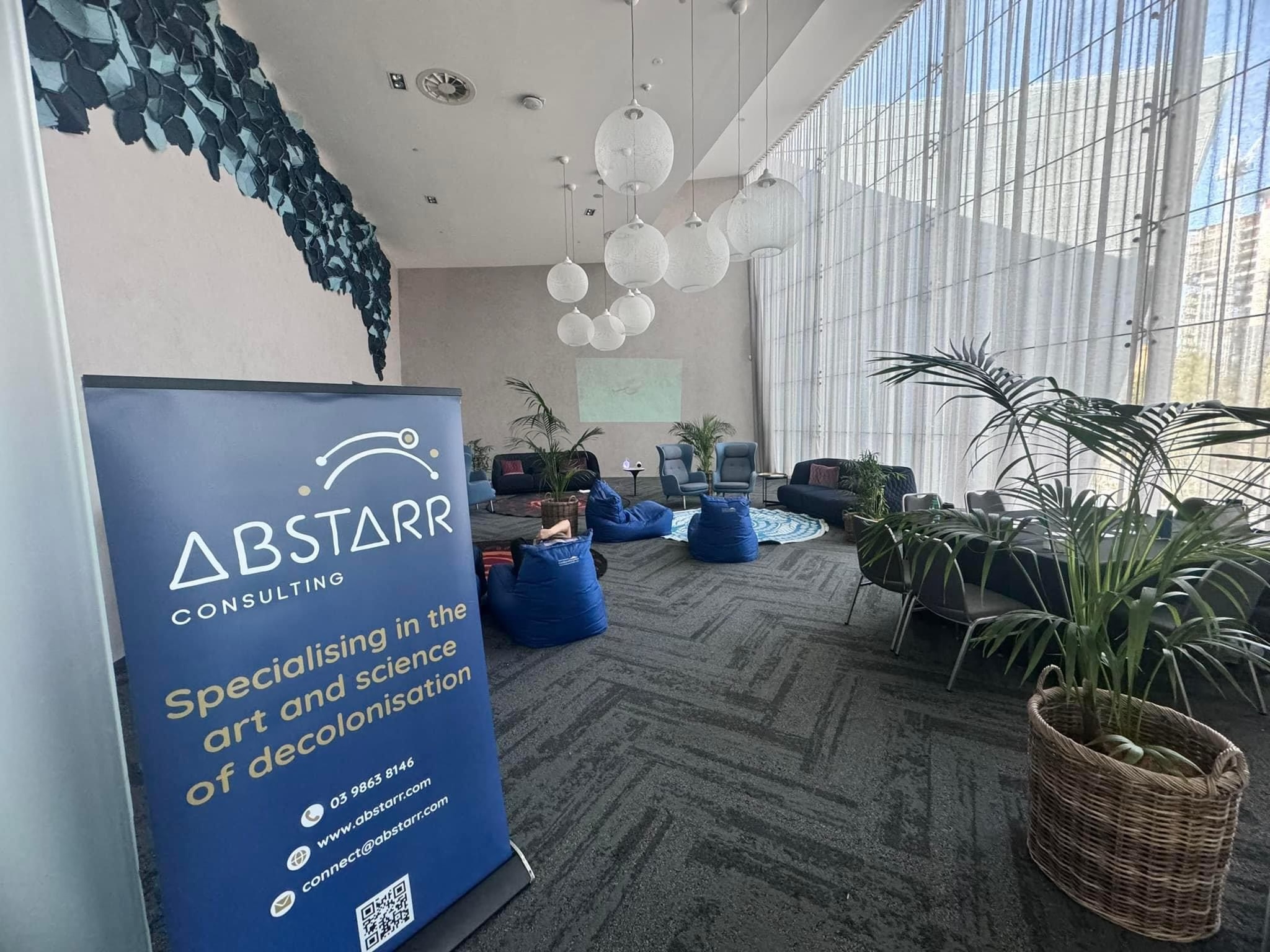October marks Mental Health Awareness Month, and the theme this month is “Let’s talk about it.”
This is a crucial time to reflect and raise awareness on mental health challenges that many Australians face and mobilise efforts to support wellbeing. ABSTARR Consulting joins in promoting the importance of wellbeing care for all.
For mob, this is especially important as many of our communities continue to experience disproportionate levels of mental health issues due to complex historical, social, and economic factors – especially ongoing and persistent impacts of colonisation and racism.
We pride ourselves in ABSTARR Consulting, in ‘straight talking with love.’ This means that we will not shy away from talking about issues that matter and people find unpleasant.
If we are going to talk about wellbeing, we must talk about racism.
Professor Gregory Phillips shared a submission to the Yoorrook Justice Commission stating that, “Racism is an ongoing everyday experience for Aboriginal and Torres Strait Islander peoples across the country. Poorer health and wellbeing outcomes are directly linked to racism.”
The Importance of Culturally Safe Mental Health Services
Aboriginal and Torres Strait Islander people have had knowledge systems for over 60,000 years on how to live well, maintain wellbeing and enhance resilience. Mental health is a mainstream term, and our preference is the term wellbeing. We view wellbeing through the paradigm of Social and Emotional Wellbeing (SEWB) (Gee et al. 2014). SEWB is a holistic concept that encompasses the physical, emotional, spiritual, and cultural dimensions of health. A sophisticated way to understand wellbeing, support wellbeing and enhance wellbeing.
We also understand the power of healing, which again is a way for Aboriginal and Torres Strait Islander peoples to recover and grow. Healing is a concept that mainstream society struggles to understand.
To address the alarming statistics that Aboriginal and Torres Strait Islander peoples face – mental health services must be culturally safe, culturally appropriate, trauma and healing informed, and community-led.
But while these national strategies are important, organisations across all sectors play a vital role in fostering wellbeing, especially for their Indigenous employees – by looking at the workplace environment.
Professor Gregory Phillips mentions that “Supporting the growth of the Aboriginal and Torres Strait Islander workforce is also necessary”: https://www.facebook.com/ahpra.gov.au/videos/gregory-phillips-discusses-the-importance-and-relevance-of-the-aboriginal-and-to/482350102647229
The Role of Organisations in Supporting Indigenous Mental Health
Organisations have a responsibility to create culturally and psychologically safe workplaces that promote the wellbeing of all employees, including Aboriginal and Torres Strait Islander workers. A culturally and psychologically safe workplace is one where employees feel respected, valued, and free to express concerns without fear of retaliation. For First Nations employees, this also means culturally safe workplaces—where their cultural identity is recognised and respected, and where they feel supported in balancing their work and cultural responsibilities.
Creating this environment involves more than just policy; it requires ongoing commitment and action to address racism, provide access to culturally safe mental health services, and integrate Aboriginal and Torres Strait Islander knowledge systems into wellbeing strategies. When organisations recognise and act on these responsibilities, they can help reduce mental health disparities and foster a more inclusive and supportive workplace.
The ABSTARR Consulting Approach: Cultural Safety – in training, strategy, wellbeing and evaluation
ABSTARR Consulting through its approach, provides a multilayered and multifactorial approach to supporting cultural safety within systems and organisations. The ABSTARR Consulting approach supports the emotional and cognitive learning journey – addressing racism and its significant negative impacts on society. ABSTARR Consulting has a strategy arm that supports organisations to embed cultural safety within their service. We also provide wellbeing support and mentoring to support organisations embedding cultural safety. ABSTARR Consulting is interested in measuring/evaluating cultural safety implementation for these organisations and sectors.
Being able to report racism and how it impacts you as an employee is critical. Supporting organisations to develop pathways of reporting, learning and accountability is part of the wider picture of supporting organisations to be culturally safe.
As one of ABSTARR’s Junior Consultants and Djab Wurrung man Elias Jarvis stated in his testimony to the Yoorrook Justice Commission, “Why would Aboriginal people report racism to racist people?”
Moving Forward: A Call to Action
Organisations are encouraged to recognise their vital role in supporting the mental health of their employees by fostering psychologically and culturally safe environments for Aboriginal and Torres Strait Islander workers.
By embracing culturally safe and community-led initiatives, we can positively impact the lives of First Nations people and contribute to reducing the mental health disparities they face (Gayaa Dhuwi, 2015)..
Suggested Actions
Here are a few actions individuals and organisations can take:
- Support and Engage Indigenous-led mental health initiatives that prioritise culturally safe care, healthy living and healing practices. Such as ABSTARR Consulting Well@Work, Weenthunga Health Network, Sobah Beverages, Blak Wattle to name a few.
- Learn about the impact of colonisation, systemic racism, and intergenerational trauma on Aboriginal and Torres Strait Islander communities through reports such as Ways Forward (Swan & Raphael, 1995).
- Advocate for changes that provide better mental health outcomes for Indigenous Australians. (Decolonizing Solidarity by Clare Land, 2015).
Together, we can create a stronger foundation for mental health that respects and uplifts the diverse cultures within our workplaces and communities.
References:
- Land, C, (2015) Decolonizing Solidarity: Dilemmas and Directions for Supporters of Indigenous Struggles. Zed Books, London.
- National Aboriginal and Torres Strait Islander Leadership in Mental Health. (2015). Gayaa Dhuwi (Proud Spirit) Declaration. Retrieved from www.natsilmh.org.au
- Swan, P., Raphael, B. (1995). Ways forward: national Aboriginal and Torres Strait Islander mental health policy national consultancy report. Canberra: Australian Government Department of Health and Ageing.

